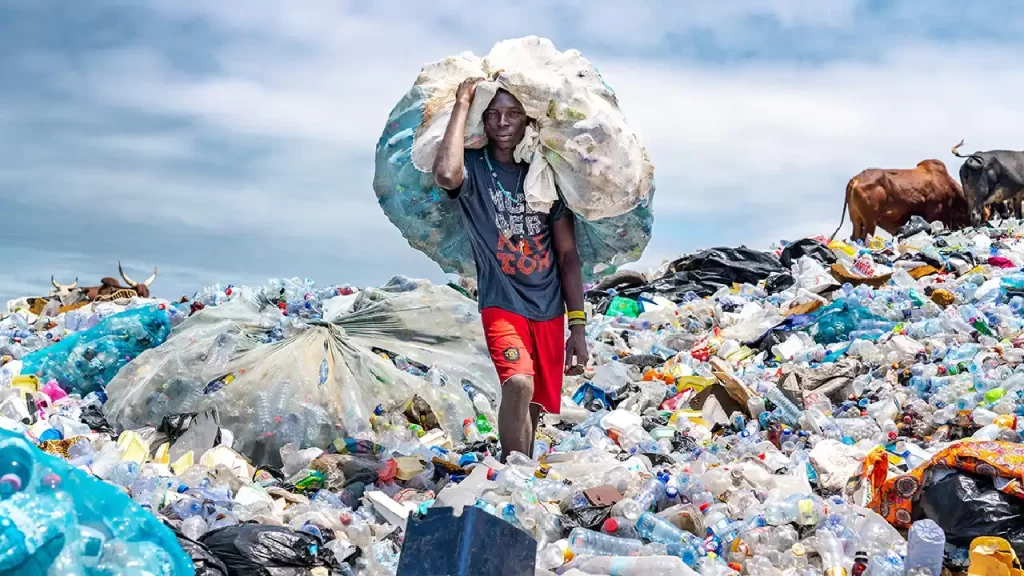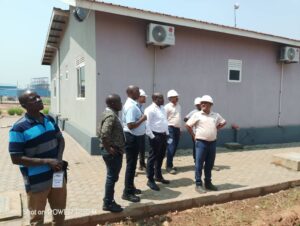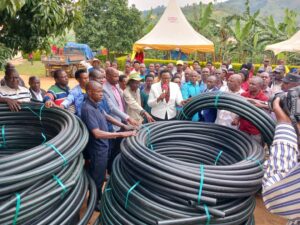
Plastic waste, including bottles, polythene bags, and other materials, has become an increasingly pressing concern for both Mother Nature and our environment. Improper disposal of plastic waste threatens to deplete crucial natural resources, pushing them towards the brink of extinction. The scale of environmental degradation caused by this issue is reaching epidemic proportions. In the western region of the country lies River Rwizi, the largest river in the Ankole sub-region.
However, due to human encroachment, population pressure, and poor agricultural practices, this vital water source has suffered significant degradation. The escalating population exerts immense pressure on the already fragile natural resource, leading to increased pollution, garbage accumulation, and numerous health concerns. Urgent measures are required to combat this plastic waste crisis and restore the ecological balance of River Rwizi.
The burning of plastic and hazardous waste in the open poses grave risks to human and animal health, while also inflicting severe damage on the environment. Aquatic life suffers greatly from the release of toxins that are both carcinogenic and capable of causing respiratory difficulties. Over time, the ecosystem surrounding River Rwizi has undergone extensive degradation. Wetlands have been drained and converted into farmland, vegetation cover has disappeared, and buffer zones have been encroached upon by human activity.
The loss of vegetation exposes the water to direct sunlight, increasing evaporation rates and disrupting the natural water retention capacity. Consequently, the accelerated drainage leaves the land dry and alters the region’s weather and climate patterns. Moreover, the invasion of both sides of the wetland and resultant silting has significantly reduced the water volume, undermining the ability of the National Water and Sewerage Corporation (NWSC) to purify and supply water to the region.
To combat the growing threat of plastic waste, a multifaceted approach is necessary:
Sensitization and Awareness: Initiating massive campaigns and awareness drives to educate residents about the dangers of improper waste disposal is crucial. Creating a widespread understanding of proper waste management practices will encourage responsible disposal habits and help control the vice.
Enforcement of Stringent Laws: Existing laws pertaining to waste management must be strictly enforced, and violators should face appropriate penalties. Setting examples for those who disregard the law will foster a culture of compliance and encourage people to adopt proper disposal measures.
Establishment of Recycling Infrastructure: The government should invest in adequate recycling plants for plastics and implement efficient waste collection and containment measures. By providing the necessary funding and support, the authorities can promote sustainable recycling practices.
Restoration of Wetlands and Eviction of Encroachers: Efforts should be made to reclaim water catchment areas by evicting encroachers and promoting vegetation growth. Demarcation of all wetlands is essential to safeguard these critical ecosystems, restore River Rwizi, and ensure the sustainable functioning of the surrounding areas.
The plastic waste crisis poses a significant threat to the ecological balance and sustainability of River Rwizi and its surrounding areas. By implementing comprehensive measures such as awareness campaigns, strict enforcement of laws, establishment of recycling infrastructure, and restoration of wetlands, we can mitigate the harmful effects of plastic waste and restore the vitality of this vital water source.
Protecting River Rwizi is not only crucial for the environment but also for the livelihoods and well-being of the communities that depend on it. It is time for concerted efforts and immediate action to combat plastic waste and safeguard our precious natural resources.


